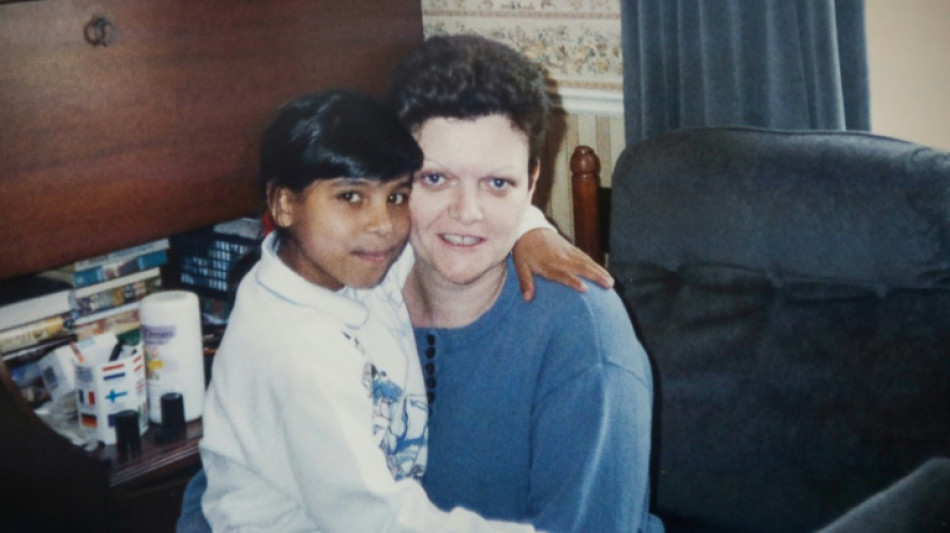
-
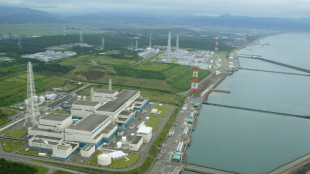 Japan to restart world's biggest nuclear plant Wednesday
Japan to restart world's biggest nuclear plant Wednesday
-
South Korean ex-PM Han gets 23 years jail for martial law role

-
 Alcaraz, Sabalenka, Gauff surge into Australian Open third round
Alcaraz, Sabalenka, Gauff surge into Australian Open third round
-
Over 1,400 Indonesians left Cambodian scam groups in five days: embassy
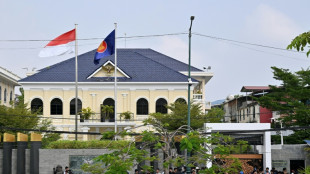
-
 Raducanu to 're-evaluate' after flat Australian Open exit
Raducanu to 're-evaluate' after flat Australian Open exit
-
Doncic triple-double leads Lakers comeback over Nuggets, Rockets down Spurs

-
 Bangladesh will not back down to 'coercion' in India T20 World Cup row
Bangladesh will not back down to 'coercion' in India T20 World Cup row
-
Alcaraz comes good after shaky start to make Australian Open third round

-
 Trump departs for Davos forum again after switching to new plane: AFP
Trump departs for Davos forum again after switching to new plane: AFP
-
Impressive Gauff storms into Australian Open third round

-
 Dazzling Chinese AI debuts mask growing pains
Dazzling Chinese AI debuts mask growing pains
-
Medvedev battles into Melbourne third round after early scare
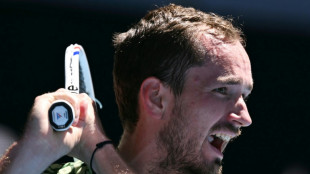
-
 Denmark's Andresen upstages sprint stars to take Tour Down Under opener
Denmark's Andresen upstages sprint stars to take Tour Down Under opener
-
Turkey's Sonmez soaks in acclaim on historic Melbourne run
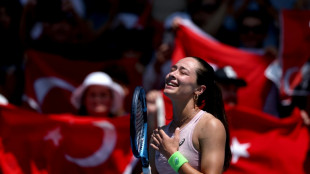
-
 Sheppard leads Rockets to sink Spurs in Texas derby
Sheppard leads Rockets to sink Spurs in Texas derby
-
Sabalenka shuts down political talk after Ukrainian's ban call

-
 Trump's plane returns to air base after 'minor' electrical issue: White House
Trump's plane returns to air base after 'minor' electrical issue: White House
-
Barcelona train crash kills 1 in Spain's second deadly rail accident in days
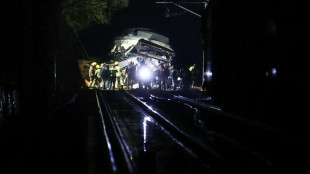
-
 North produces enough nuclear material a year for 10-20 weapons: S. Korea president
North produces enough nuclear material a year for 10-20 weapons: S. Korea president
-
Japan ex-PM Abe's alleged killer faces verdict
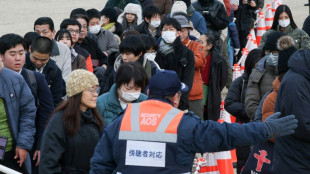
-
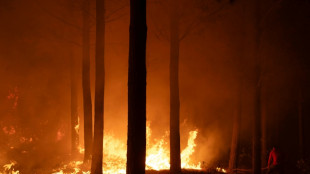 Climate change fuels disasters, but deaths don't add up
Climate change fuels disasters, but deaths don't add up
-
Stocks stable after tariff-fuelled selloff but uncertainty boosts gold

-
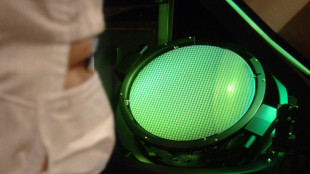 What growth?: Taiwan's traditional manufacturers miss out on export boom
What growth?: Taiwan's traditional manufacturers miss out on export boom
-
'Super-happy' Sabalenka shines as Alcaraz gets set at Australian Open

-
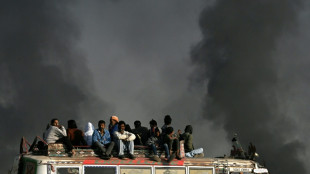 With monitors and lawsuits, Pakistanis fight for clean air
With monitors and lawsuits, Pakistanis fight for clean air
-
Sabalenka sets up potential Raducanu showdown at Australian Open

-
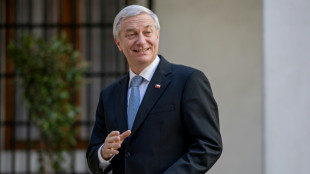 Chile president picks Pinochet lawyers as ministers of human rights, defense
Chile president picks Pinochet lawyers as ministers of human rights, defense
-
Osaka says 'I'm a little strange' after Melbourne fashion statement

-
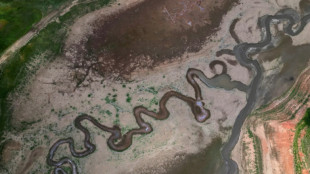 UN report declares global state of 'water bankruptcy'
UN report declares global state of 'water bankruptcy'
-
Trump heads for Davos maelstrom over Greenland

-
 Ukraine's Oliynykova wants Russian, Belarusian players banned from tennis
Ukraine's Oliynykova wants Russian, Belarusian players banned from tennis
-
Kasatkina cannot wait to be back after outpouring of Melbourne support

-
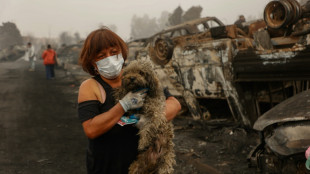 Chile blaze victims plead for help from razed neighborhoods
Chile blaze victims plead for help from razed neighborhoods
-
Russian minister visits Cuba as Trump ramps up pressure on Havana
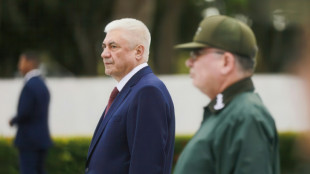
-
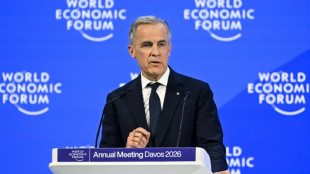 World order in 'midst of a rupture': Canada PM Carney tells Davos
World order in 'midst of a rupture': Canada PM Carney tells Davos
-
Senegal's 'historic' AFCON champs honoured with parade, presidential praise

-
 Audi unveil new car for 2026 Formula One season
Audi unveil new car for 2026 Formula One season
-
Man City humiliated, holders PSG stumble, Arsenal remain perfect

-
 Vinicius, Real Madrid need 'love' not whistles: Bellingham
Vinicius, Real Madrid need 'love' not whistles: Bellingham
-
Late Suarez winner stops Champions League holders PSG in Lisbon

-
 Frank seeks Spurs 'momentum' after beating Dortmund
Frank seeks Spurs 'momentum' after beating Dortmund
-
Jesus' 'dream' brace at Inter fires Arsenal into Champions League last 16

-
 US regulator appeals Meta's court victory in monopoly case
US regulator appeals Meta's court victory in monopoly case
-
Netflix shares fall as revenue appears to stall

-
 Tottenham beat 10-man Dortmund to hand Frank stay of execution
Tottenham beat 10-man Dortmund to hand Frank stay of execution
-
Mbappe, Vinicius help Real Madrid thrash Monaco in Champions League

-
 Men's Fashion Week kicks off in Paris with Louis Vuitton show
Men's Fashion Week kicks off in Paris with Louis Vuitton show
-
Jesus fires Arsenal past Inter and into Champions League last 16

-
 Muted anniversary: Trump marks first year back with grievances
Muted anniversary: Trump marks first year back with grievances
-
Humiliated Man City have to 'change the dynamic': Guardiola


Omagh bomb still haunts N.Ireland's fragile peace 25 years on
On a bright Saturday in August almost 25 years ago, Kevin Skelton was rejoining his family shopping for new school shoes in Omagh's town centre when a massive bomb went off.
Amid the ensuing carnage, he clambered through a hole in the shop's storefront trying to reach his wife Philomena and their three girls.
"I found Mena lying face down in the rubble," said Skelton, who recalled checking her for a pulse. "I could find nothing."
Philomena, who was aged 39, was carrying the couple's unborn twins.
She was one of 29 people killed when the car bomb planted by the Real IRA exploded next to the shop on August 15, 1998.
Skelton's daughter Shauna was among the more than 200 people who were injured, while his other two girls escaped physically unscathed.
It was the deadliest attack in three decades of violence in Northern Ireland known as "The Troubles".
Skelton is still haunted by the apocalyptic scene and "the cries of pain" as he searched for his family that day.
"What in God's name was it all for?" the 68-year-old asked.
Although Northern Ireland has remained largely peaceful during that time, he fears a similar attack by paramilitary groups, which are vastly diminished but remain a serious threat.
"You always have that fear. You only need one lunatic to put a bomb in the boot of a car... and park it in a main street and walk away," Skelton told AFP.
- 'Galvanising effect' -
The Omagh bombing came four months after the signing of the Good Friday Agreement, which aimed to end "The Troubles".
It was perpetrated during an IRA ceasefire by dissident Republicans opposed to the deal.
"Despite that terrible tragedy, it actually had a galvanising effect on the peace process because it came so soon after the Good Friday Agreement," Queen's University Belfast academic Peter McLoughlin said.
But the political historian noted "hardcore" remnants remain within both pro-UK loyalist and pro-Ireland republican communities, with police noting around a third of organised crime is also directly linked to paramilitaries.
"There will always tend to be groups who have this extreme position, that violence is the way forward and will try and exploit the political difficulties," McLoughlin said.
Northern Ireland has been without a devolved government for much of the past six years, amid multiple breakdowns in power-sharing between the two communities.
Loyalist paramilitaries -- namely the Ulster Volunteer Force (UVF) and Ulster Defence Association (UDA) -- number an estimated 12,500, according to information provided to the BBC by Northern Irish police and Britain's MI5 domestic intelligence agency.
The New IRA, the most prominent dissident Republican paramilitary group, is far smaller, with merely dozens of members.
Despite its size, it has carried out several high-profile attacks in recent years.
In April 2021, the group planted a bomb by a policewoman's car in what police called an attempt to kill her and her daughter.
In February, the group shot John Caldwell, a senior police officer in Omagh, as he left a sports complex with his son while off-duty.
Shortly afterwards, the UK government raised Northern Ireland's terrorism threat level, citing the continuing threat of political violence.
- 'No right' -
The attacks have heightened deep unease within Northern Irish police over their vulnerability, made worse by two separate data leaks announced this week which revealed the personal details of thousands of staff.
The last police officer killed by dissident Republicans was Ronan Kerr. A bomb was placed under his car and exploded outside his home in Omagh in 2011.
Meanwhile the civilian population has been left scarred by the decades of violence, with 15 to 30 percent of people impacted by "paramilitary harm", according to official estimates.
Anthony McIntyre, a former Provisional IRA gunman, was jailed for 18 years for the 1976 killing of a UVF member.
Released from prison in 1992 and now a writer and academic, he initially continued to support the IRA's bombing campaign but by the 1998 Omagh attack had renounced violence.
"I was appalled by it," he said. "We simply had no right."
McIntyre joined the IRA in 1973 because of "events on the street, British Army harassment, loyalist killings", but also because "it seemed romantic".
He rejects today's New IRA as a "cult", arguing that acts like Caldwell's assassination attempt have "appalling logic".
"The people who came to kill John Caldwell weren't doing anything at all other than trying to introduce mayhem as part of a failed military and political struggle," McIntyre said.
And to do that in Omagh, in particular, was like "visiting the scene of the crime to desecrate it," he added.
K.Brown--BTB




